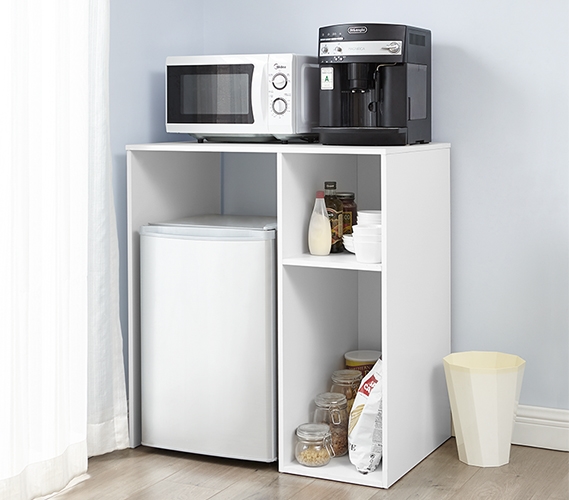A mini fridge is a compact and convenient appliance that can be used in a variety of settings. Whether you’re looking for a fridge for your dorm room, office, or small apartment, choosing the right size is essential. In this essay, we’ll discuss several factors to consider when choosing the right size mini fridge for you.

- Available Space
Before choosing the size of your mini fridge, consider the available space where you plan to place it. Measure the width, height, and depth of the space and use these measurements to determine the maximum size that will fit comfortably. Keep in mind that you’ll need some clearance space around the fridge to ensure proper ventilation and to allow for the door to open and close easily.
- Storage Needs
The amount of storage space you need is another critical factor to consider when choosing a mini fridge’s size. If you plan to use the fridge to store drinks or a few snacks, a small mini fridge with a capacity of 1.7 to 2.5 cubic feet may be sufficient. However, if you need to store more food or larger items like cans or bottles, a larger mini fridge with a capacity of 3.2 to 5 cubic feet may be a better choice.
Consider your daily usage, how much food and drinks you need to store, and how frequently you plan to refill the fridge. If you’re looking to store frozen foods or ice, choose a mini fridge with a freezer compartment.
- Lifestyle and Habits
Your lifestyle and habits are also crucial factors to consider when choosing the right size mini fridge. If you live alone or with a partner, a small mini fridge may be sufficient. However, if you have a family or frequently have guests over, a larger mini fridge may be necessary.
Additionally, consider your daily routine and habits. If you’re always on the go and rarely eat at home, a smaller mini fridge may work for you. However, if you cook at home frequently or enjoy having plenty of snacks and drinks on hand, a larger mini fridge may be the best option.
- Energy Efficiency
Energy efficiency is an essential factor to consider when choosing a mini fridge’s size. Smaller mini fridges are generally more energy-efficient than larger ones, as they require less power to cool a smaller space. Look for a mini fridge with an Energy Star rating, indicating that it meets specific energy-saving guidelines set by the US Environmental Protection Agency.
- Budget
Your budget is another crucial factor to consider when choosing the right size mini fridge. Generally, smaller mini fridges are less expensive than larger ones. However, the price of a mini fridge can vary depending on its features, such as a built-in freezer or a reversible door. Determine your budget and choose a mini fridge that meets your storage needs and fits within your price range.
- Portability
If portability is essential, consider choosing a smaller mini fridge that’s easy to move around. Many mini fridges come with built-in handles, making them easy to carry or move around. Additionally, consider the weight of the mini fridge and whether you’ll need to move it up stairs or across long distances.
- Noise Level
The noise level of a mini fridge is another factor to consider, especially if you plan to use it in a bedroom or small space. Smaller mini fridges are generally quieter than larger ones, but it’s important to check the decibel rating to ensure that it won’t disrupt your sleep or work environment.
Conclusion
Choosing the right size mini fridge depends on several factors, including available space, storage needs, lifestyle, energy efficiency, budget, portability, and noise level. Consider these factors carefully before making a decision to ensure that your mini fridge meets your needs and fits your lifestyle. By choosing the right size mini fridge, you can enjoy the convenience of a compact fridge while keeping your food and drinks fresh and easily accessible.